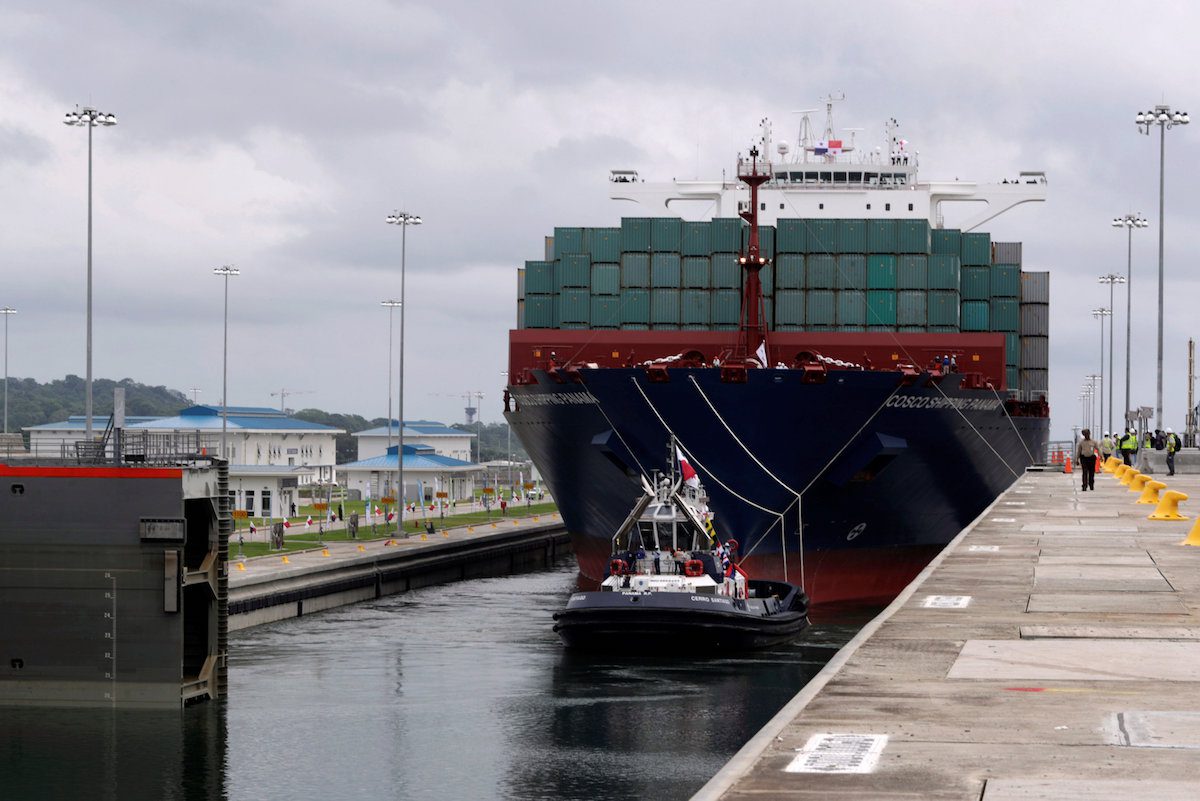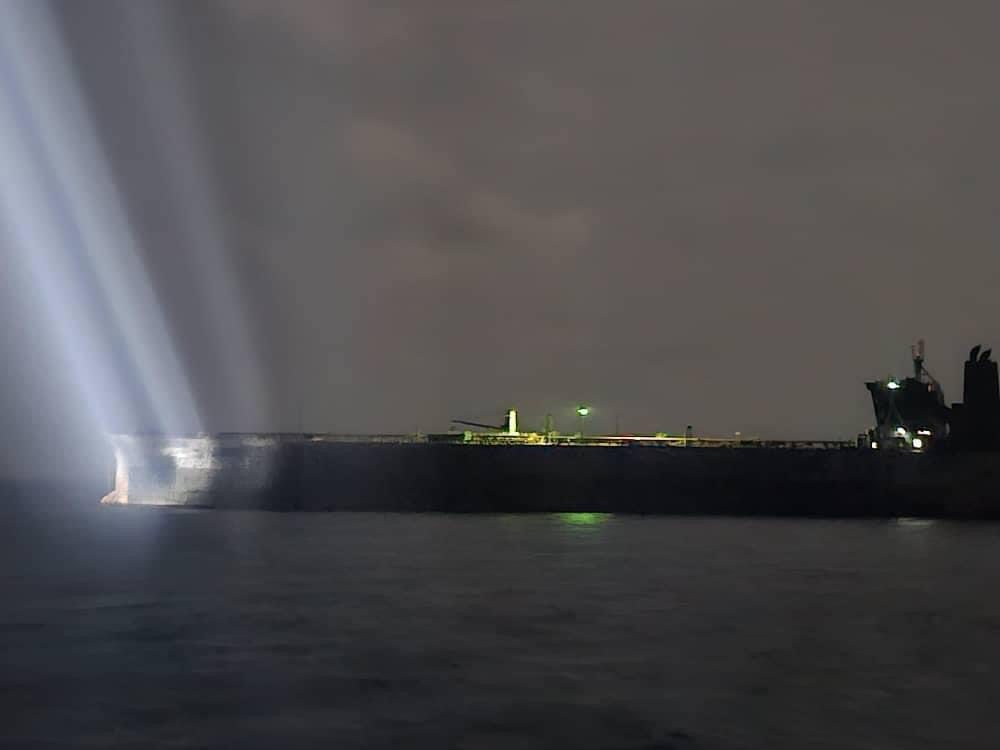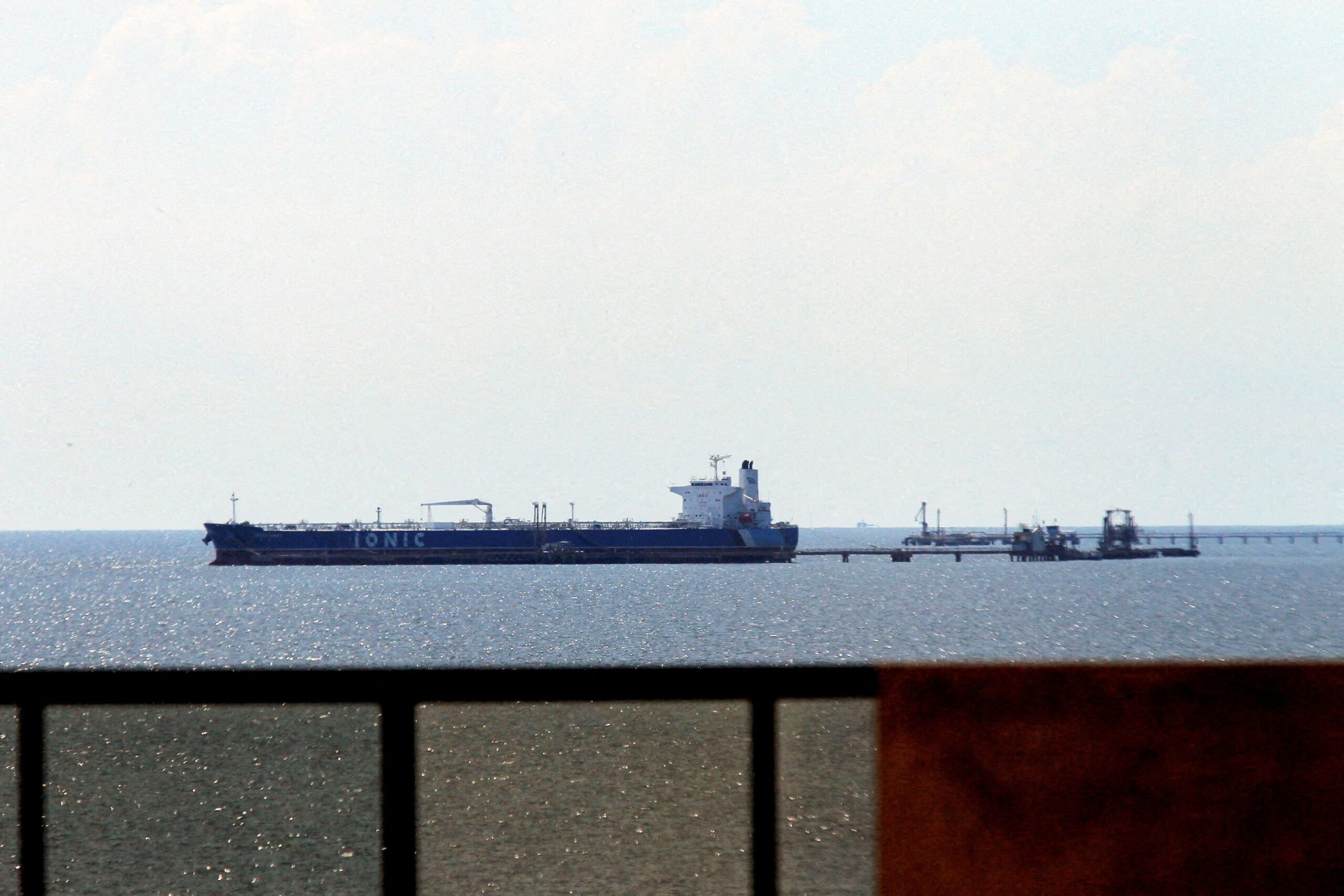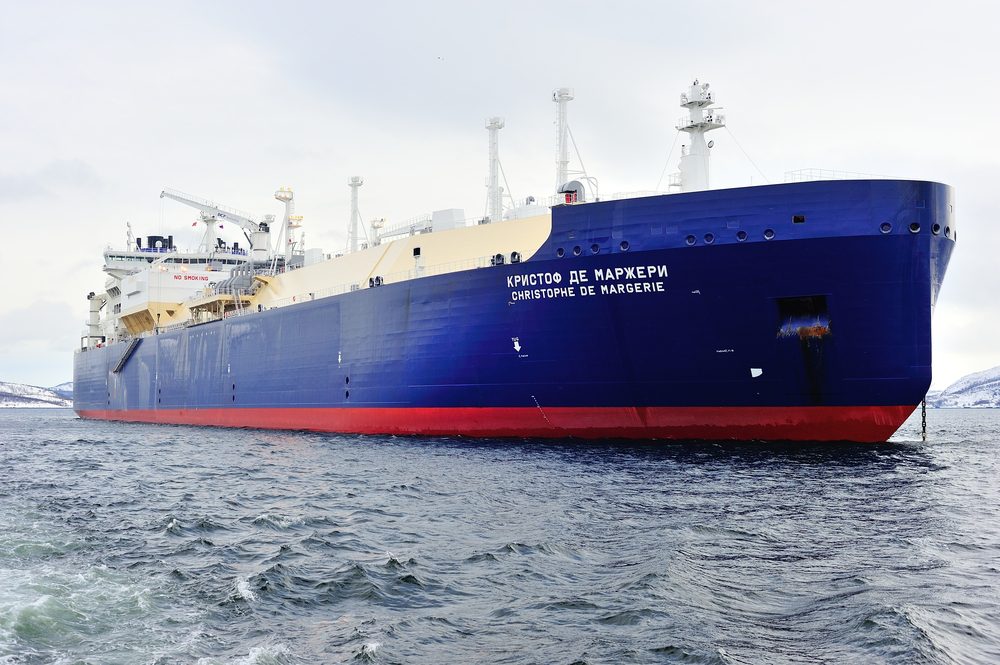The International Organization of Masters, Mates & Pilots (MM&P) is warning of risks associated with maneuvering Neopanamax ships through the expanded Panama Canal. Could an accident in the new Neopanamax locks be a supply chain crisis waiting to happen?
As the U.S. and the rest of the world grapple with supply chain bottlenecks, the seafarers union MM&P says careful consideration should be given to front-line workers in every sector of transportation who are often treated as disposable despite their essential duties.
The tugboat operators responsible for maneuvering enormous Neopanamax vessels through the expanded Panama Canal locks, which opened in 2016, are a case in point. “A developing crisis in the Canal has the potential to impact international maritime trade to an extent far greater than the grounding of the M/V Ever Given in the Suez Canal earlier this year,” MM&P said in an emailed statement.
The union says Panama Canal workers are being forced to perform their jobs under increasingly hazardous conditions, a situation that puts the world’s supply chains at growing risk.
The hazards faced by Canal workers stem primarily from a well-documented design issue of the expanded Canal, which has given rise to a much more labor-intensive process for transiting vessels compared to the old, existing locks.
In the old locks, electric-powered locomotive “mules” run on tracks along the lock chamber sidewalls and utilize mooring wires and tension winches to maintain the position of transiting ships. In the new locks, however, tugboats are continuously required to safely position vessels in transit. “This puts great strain on the tugboat operators who are at the controls of their tugs, often for many hours without relief, throughout the entire transit,” MM&P said.
“The Panama Canal Authority continues to turn a blind eye to the danger. It refuses to hire more personnel. It operates a fleet of tugs that is both too small and technically deficient. It blatantly ignores industry standard work/rest hours. Fatigue, injury, and death have resulted. Experienced tug captains and other Canal workers who speak out are being suspended from work and threatened with termination,” according to the MM&P.
In one incident in 2017, the USCGC Tampa was reportedly struck by one of the tugs after the tug captain fell asleep on the job. “Action must be taken to ensure safe transits through the Canal,” the MM&P said.
According to the union, the numbers tell the story. The lock chambers in the new Canal are 1400 feet long. Ships of up to 1215 feet in length are approved for transit. Each of the two tugs that are now required—one on the bow and one on the stern of each transiting vessel—average 90 feet in length. “It’s clear that there is no room for error when large vessels are being positioned in the chambers,” MM&P says.
Consider also that 12-hour daily work shifts are the norm, that the tugboat operators must commute to and from their jobs through heavy traffic and that their weekly schedule is a minimum of five days in a row on duty, says the union. “Such a schedule is exceedingly difficult to maintain, even in the best of times. In the pandemic, the situation has become untenable.”
Panama Canal tugboat captains are represented by the Unión de Capitanes y Oficiales de Cubierta (UCOC), which has been in past has battled with the Panama Canal Authority over minimum safe manning, access to training and equipment, and hazardous working conditions on tugboats in the new Neopanamax locks since the inauguration of locks in 2016. In 2018, the International Transport Workers’ Federation, an umbrella organization representing both the MM&P and UCOC, released a study drawing attention to the hazards associated with overworked tugboat workers.
“The results so far have been at least three fatalities from stress-induced heart conditions and two cases of stroke (in which the patients survived). Line-handling accidents occur with regularity during transit operations; one of them claimed the life of a Canal line-handler. A fatigue study commissioned by the International Transport Workers’ Federation in 2018 made over a dozen recommendations to correct this situation. None have been adopted,” the MM&P said.
The warning from the MM&P comes as the Panama Canal Authority recently reported record annual tonnage in its 2021 fiscal year, with the waterway transiting 516.7 million Panama Canal tons (PC/UMS), an 8.7% increase compared to the FY2020 and 10% above the tonnage registered in FY2019, the last pre-pandemic fiscal year. The waterway serves as a critical shortcut for U.S. East Coast-bound containerships along with U.S. energy exports to Asia, including oil and natural gas, among other sectors.
“The Panama Canal Authority has allowed conditions to deteriorate to the point that it is only a question of time until disaster strikes. The lock gates of the new Canal are vulnerable. If a Panama Canal lock gate is breached by an out-of-control vessel, it will not be a question of dredging and awaiting high tide to re-open this essential maritime artery. Unlike the situation in the Suez Canal (which is simply a ditch), if a single lock gate were to be breached, it would take months to repair. In the meantime, the Panama Canal would be closed to all Neopanamax vessels. A disaster involving one of the many Neopanamax LNG vessels transiting the new canal could easily lead to a humanitarian catastrophe.
“As an American maritime labor organization that represents captains and other licensed deck officers aboard vessels transiting the Panama Canal, we join with the Panama Canal workers—including tug captains, crewmembers, shoreside line-handlers and maintenance workers—in calling for justice and safe working conditions in the operation of the Panama Canal. Immediate action is required,” the MM&P said.

 Join The Club
Join The Club











